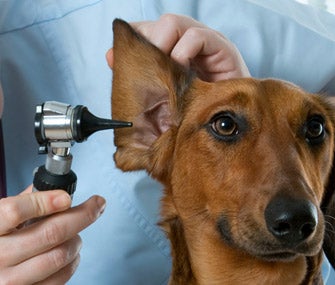April 30, 2014
Pet Cancer Awareness Month: How Do You Detect Cancer Early in Your Pets?
Cancer is the most common cause of death for our pets. While a good diet and a healthy lifestyle can help prevent all types of illness, it’s best to closely monitor your pet’s health in order to pick up on early warning signs of disease.
Diagnosing pet cancer requires a thorough veterinarian and medical testing, however, the following symptoms indicate that your pet may not be feeling well, and may indicate something more serious.
Here are 5 Signs of Illness in Your Pet (Sometimes Cancer-Related):
1—Lumps – As pets age, they will sometimes develop non-cancerous skin growths and other lumps and bumps. While many times these growths end up being benign, they can sometimes be a sign of lymphoma or a skin cancer. A trip to the vet will ease your concern, as your vet will run a needle biopsy or another test if she suspects an illness.
2—Unexplained weight loss – If your pet is losing weight, but his or her diet and exercise patterns haven’t changed, you may want to take your pet in for a check-up. Your vet may want to rule out cancer and will help you get to the bottom of the unexplained change in weight.
3—Unusual odors – If your pet has unpleasant odors coming from his or her mouth, ears or anal glands, this could be a sign of cancer in those areas. While these symptoms could also indicate an infection, your veterinarian will examine the areas in question and make recommendations for next steps.

4—Change in bathroom habits—Difficulty going to the bathroom, an increase in bathroom frequency or “forgetting” the approved bathroom locations can be signs that your pet is ill. Keep in mind that a move or other stressful life change can also affect bathroom habits, however it’s best to discuss the issue with your vet.
5—Lethargy – If your pet is no longer excited to go for walks or rides in the car, or is sleeping more often than usual, it’s time for a trip to the vet. Any illness is likely to leave your pet feeling less than stellar, so while it may not be cancer-related, you won’t know until you go in for a visit.

Remember, just like with humans, diet, exercise and a healthy lifestyle play a role in disease prevention. You have the best chance of catching an illness early and resolving it if you pay attention to changes in your pet’s behavior and take him or her to the veterinarian regularly. Early detection can make all the difference.





